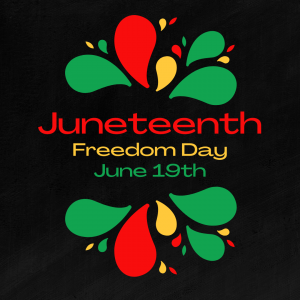Dear WWCC community,
Juneteenth—celebrated across the country on June 19—marks an important milestone in the struggle for freedom. It is a celebration of the day enslaved Black Texans finally learned they were free—two and a half years after Abraham Lincoln issued the Emancipation Proclamation, and two months after the Civil War ended. Juneteenth has been celebrated in Texas since 1980 but wasn’t signed into federal law until just last year, more than 40 years later. This is the first federal holiday added to the United States’ calendar since 1983.
The history of Juneteenth is deeply connected to the injustice of enslavement. Despite attempts to quickly commercialize the recognition of the holiday, this day is an opportunity to reflect on and engage in the ongoing fight for freedom and justice for all peoples. This celebration is a reminder of the importance of sharing honest history, and the relevance of understanding the past in order to make changes in the present. No matter how ugly and horrific, the past is doomed to repeat itself without active acknowledgment of and a commitment to right the wrongs perpetrated against so many.
Juneteenth should also be a celebration of culture, community, and activism. It is an opportunity to recognize how Black individuals continue to demonstrate persistence and resilience, despite frequently not being recognized for their contributions to society. It’s a celebration of hope, even in the darkest hours. Let’s remember that the history of Black and African American people globally does not only consist of colonization, captivity, and sorrow, but also of innovation, inspiration, strength, and joy.
I invite you all to take this day of celebration and reflection to learn more about Juneteenth and its historical legacy. As I’ve shared before, this can be an opportunity to consider language and its implications and find ways to reframe our actions in the future. Here is a community-sourced document by P. Gabrielle Foreman, et al. that offers some important considerations. “Writing about Slavery/Teaching About Slavery: This Might Help.”
I hope you will join me in the opportunity to learn more about how commemorations of Juneteenth can acknowledge a painful history while also empower our BIPOC community members and friends. I hope we can all use moments like this to remind us to always advocate for change.
In solidarity,
Margarita

